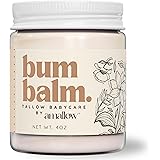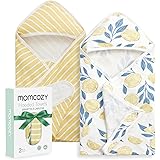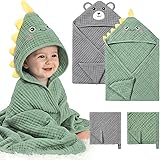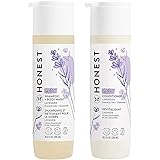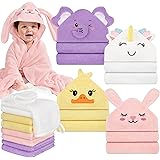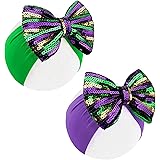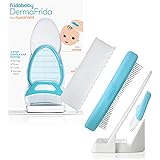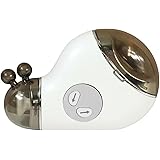The arrival of a baby into one’s life often brings immeasurable joy and a profound sense of responsibility. As beautifully depicted in the accompanying video, those initial moments of cooing, giggling, and innocent discovery are truly precious. However, alongside the wonder comes the crucial task of ensuring their well-being, particularly concerning their delicate health and hygiene. It is widely acknowledged that a baby’s needs are distinct from those of adults, especially when it comes to the products used on their skin and around their environment. The rationale behind this distinction is deeply rooted in the unique physiological characteristics of infants.
Understanding the Vulnerability of Baby Skin and Why Natural Baby Products Are Essential
A baby’s skin is remarkably different from adult skin; it is thinner, more permeable, and lacks the fully developed protective barrier that adults possess. This heightened permeability means that substances applied to an infant’s skin are absorbed more readily into their bloodstream. Consequently, exposure to harsh chemicals, artificial fragrances, dyes, and other irritants commonly found in adult products can lead to a myriad of issues, ranging from mild skin irritations like rashes and dryness to more severe allergic reactions and even potential long-term health concerns. Therefore, the necessity of selecting gentle, natural baby products for their health and hygiene cannot be overstated.
The Science Behind Delicate Skin Care for Infants
Studies have shown that infant skin can absorb chemicals up to three times faster than adult skin. This increased absorption rate is attributed to a less developed stratum corneum – the outermost layer of the epidermis – which functions as the primary barrier against environmental aggressors. Furthermore, the ratio of skin surface area to body weight is significantly higher in babies compared to adults, meaning a proportionally larger area is exposed to any applied substances. It is thus imperative that any product coming into contact with a baby’s skin is formulated with the utmost care, prioritizing natural ingredients that support, rather than compromise, this developing barrier function.
Choosing the Right Products: Focus on Natural Ingredients and Germ Protection
As highlighted in the video, “What babies need are products with natural ingredients, that are tough on germs.” This statement encapsulates the dual challenge of baby health and hygiene: to effectively clean and protect without resorting to harsh chemicals. The emphasis on natural ingredients ensures that the products are derived from sources like plants, minerals, or other naturally occurring substances, thereby minimizing the risk of introducing synthetic irritants. These ingredients are typically chosen for their gentle cleansing properties, moisturizing benefits, and hypoallergenic profiles.
What to Look For in Gentle Baby Health and Hygiene Products
When selecting baby health and hygiene products, several key factors should be considered:
- Hypoallergenic Formulas: Products that are designed to minimize the likelihood of an allergic reaction are often preferred. While no product can guarantee zero allergic reactions, hypoallergenic formulations are created by excluding common allergens.
- Fragrance-Free: Artificial fragrances are a frequent cause of skin irritation and sensitivity in infants. Opting for products that are truly fragrance-free, or scented only with natural essential oils known for their gentle properties, is often advised.
- Dye-Free: Synthetic dyes can also be irritants. Products without added colors are generally considered safer for sensitive baby skin.
- pH-Balanced: Baby skin has a slightly acidic pH (around 5.5). Products that are pH-balanced to match this can help maintain the skin’s natural protective acid mantle, preventing dryness and irritation.
- Tear-Free Formulas: For shampoos and washes, tear-free formulas are developed to be gentle on a baby’s eyes, minimizing stinging and discomfort during bath time.
- Dermatologist and Pediatrician Tested: While not a guarantee, products that have undergone testing by dermatologists and pediatricians offer an additional layer of assurance regarding their safety and efficacy for infant use.
Effective Germ Protection Without Harsh Chemicals
The need for products “tough on germs” while remaining gentle is a critical balance. Babies are constantly exploring their environment, putting hands in mouths, and coming into contact with various surfaces. Effective hygiene practices are therefore essential to prevent the spread of infections. However, this does not necessitate the use of aggressive antibacterial agents, many of which can strip the skin of its natural oils and contribute to microbial resistance.
Instead, the focus should be on thorough yet gentle cleansing. For example, a mild baby soap or wash made with natural cleansers can effectively remove dirt, grime, and germs without compromising the skin’s barrier. Furthermore, keeping a baby’s environment clean – toys, clothing, bedding – using baby-specific detergents is equally important. These detergents are formulated to be free of strong chemicals, optical brighteners, and heavy perfumes, which can remain on fabrics and irritate a baby’s sensitive skin. It is recognized that frequent hand washing for caregivers and occasional gentle cleansing for the baby are foundational elements of robust baby health and hygiene.
The Impact of Appropriate Baby Care Products on Development
The choice of appropriate baby health and hygiene products extends beyond mere skin care; it contributes to a baby’s overall comfort, sleep quality, and even early developmental experiences. A comfortable baby, free from skin irritation or discomfort, is often a happier baby, more receptive to interaction and learning. Gentle bath times, for instance, can become positive sensory experiences, promoting bonding and routine. Conversely, discomfort caused by unsuitable products can lead to fussiness, disturbed sleep, and a generally less contented infant.
Therefore, investing in high-quality, natural baby products is not just about protection; it is about fostering an environment where a “little angel” can thrive. The deliberate selection of such items forms a cornerstone of comprehensive infant care, reflecting a commitment to their immediate well-being and long-term health. The market now offers numerous options that align with these principles, ensuring that parents are well-equipped to provide the specific care their babies require, without compromise.



